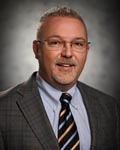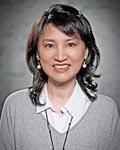
The Duke University School of Nursing (DUSON) Office of Global and Community Health Initiatives recently welcomed 21 students representing Barbados, Japan, Korea, the Netherlands and the Philippines. These students were joined by seven DUSON students for the inaugural two-week N555 course entitled “Exploring Patterns of Global Health and Illness.”
 “The School of Nursing has had the fortune to send students abroad for global clinical immersion experiences for years now, but we really haven’t been able to welcome international students here to a short course,” said Michael Relf, PhD, RN, ACSN-BC, AACRN, CNE, FAAN, associate dean for Global and Community Affairs and N555 course director. “With our new strategic plan, one of our goals is to have bi-directional learning, so this program was founded under the sense that not only do we take DUSON students out to see the world, but this is also an opportunity for international students to come to DUSON and experience our community and engage in cross-cultural learning.”
“The School of Nursing has had the fortune to send students abroad for global clinical immersion experiences for years now, but we really haven’t been able to welcome international students here to a short course,” said Michael Relf, PhD, RN, ACSN-BC, AACRN, CNE, FAAN, associate dean for Global and Community Affairs and N555 course director. “With our new strategic plan, one of our goals is to have bi-directional learning, so this program was founded under the sense that not only do we take DUSON students out to see the world, but this is also an opportunity for international students to come to DUSON and experience our community and engage in cross-cultural learning.”
International nursing students joined DUSON students for a two-week cultural immersion experience that cultivated an enhanced understanding of nursing and global health and explored the impact of the social determinants of health.
“The course was an intense three-credit course that included lectures and small group work as well as visiting our community partners such as the Lincoln Community Center, an outpatient primary care facility, and TROSA, an innovative, multi-year residential program that provides comprehensive treatment and continuum of care for substance abusers or substance abuse recoverers,” said Jennie De Gagne, PhD, DNP, RN-BC, CNE, assistant professor for DUSON and N555 course faculty.
 De Gagne added: “At the end of the course the students took all that they had learned by examining global patterns of health and illness and contrasting patterns across societies and cultures from a bio-psycho-social perspective and completed group presentations that included a student from each country.”
De Gagne added: “At the end of the course the students took all that they had learned by examining global patterns of health and illness and contrasting patterns across societies and cultures from a bio-psycho-social perspective and completed group presentations that included a student from each country.”
“We built a lot of experiential learning into this course, but we also built the course to showcase the strength of Duke University,” Relf said. “We had global health experts from nursing within our School but also from across the University, such as Dr. Eve Puffer who is a global mental health researcher with the Duke Global Health Institute." Relf and De Gagne both expressed that it was important for the course to not only be bi-directional but interprofessional as well.
The students attending the course represented six different countries, and the course highlighted similarities in health outcomes. “In day five of the course, we covered the global burden of non-communicable diseases, such as obesity, diabetes and hypertension,” said Relf. “And they were a problem all of our societies were facing.”
“I chose this program because I wanted to know how health care is provided in other countries,” said David Immanuel H. Dionsio, a nursing student from the Philippines. “And one thing I will be able to take back to my fellow classmates is that we’re all equals, and we have the capabilities to help the world.”
Alyssa Sue Norville, a graduate nursing student from Barbados, attended the program for the inclusiveness it offered. “I’ve had a desire for my school to be more inclusive, and this program allowed me to learn from other cultures and institutions. This was a way to not only benefit myself but my peers who couldn’t come.”
DUSON ABSN student Amber Sperry wanted to participate in one of the School’s global clinical immersion trips to Barbados when she first came to Duke. However, for personal reasons she wasn’t able to go. This program became the best replacement. “With the global clinical immersion trip, I would have focused on one culture,” she said. “This course allowed me an opportunity to learn about different cultures, and in a sense this felt richer with more perspectives. This has really been a valuable experience, to learn from everyone, and now we can collectively make a difference.”